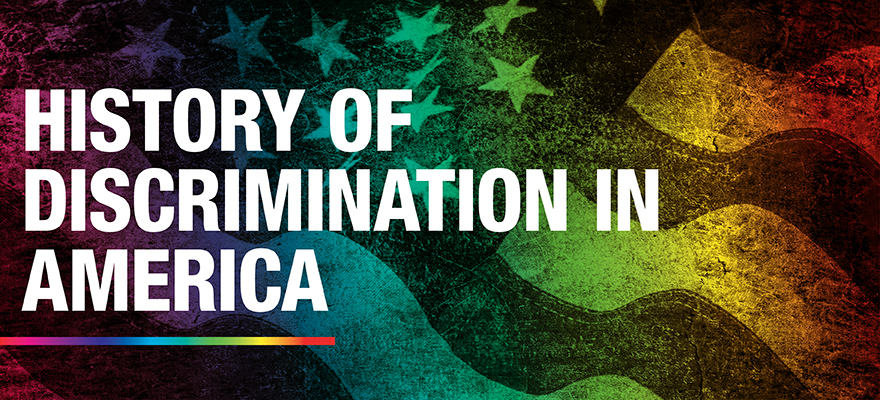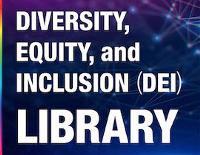History of Discrimination in America
Home
/
About SAEM
/
Academies, Interest Groups, & Affiliates
/
ADIEM
/
Resources
/
DEI Resource Library
/
History of Discrimination in America

Articles
- Discrimination 911 - Novel Response Framework Teach Bystanders to be Upstanders When Facing Microaggressions Microaggressions are pervasive in daily life, including in undergraduate and graduate medical education and across health care settings. The authors created a response framework (i.e., a series of algorithms) to help bystanders (i.e., health care team members) become upstanders when witnessing discrimination by the patient or patient’s family toward colleagues at the bedside during patient care, Texas Children’s Hospital, August 2020 to December 2021.
- My White Friend Asked Me on Facebook to Explain White Privilege. I Decided to Be Honest:
Yesterday I was tagged in a post by an old high school friend asking
me and a few others a very public, direct question about white privilege and racism. I feel compelled not only to publish his query, but also my response to it, as it may be a helpful discourse for more than just a few folks on Facebook.
- White Supremacy Culture: Tema Okun’s list of characteristics of our dominant culture, aka White Supremacy Culture - not just the extreme versions like the KKK, but the systems that keep racism alive even in a country where very few individuals would consider themselves racist.
Books
- An Indigenous Peoples' History of the United States: Today in the United States, there are more than five hundred federally recognized Indigenous nations comprising nearly three million people, descendants of the fifteen million Native people who once inhabited this land. The centuries-long genocidal program of the US settler-colonial regimen has largely been omitted from history. Now, for the first time, acclaimed historian and activist Roxanne Dunbar-Ortiz offers a history of the United States told from the perspective of Indigenous peoples and reveals how Native Americans, for centuries, actively resisted expansion of the US empire.
- Fatal Invention: How Science, Politics, and Big Business Re-create Race in the Twenty-first Century: Fatal Invention: How Science, Politics, and Big Business Re-create Race in the Twenty-first Century. This groundbreaking book by the acclaimed Dorothy Roberts examines how the myth of biological concept of race—revived by purportedly cutting-edge science, race-specific drugs, genetic testing, and DNA databases—continues to undermine a just society and promote inequality in a supposedly “post-racial” era. Named one of the ten best black nonfiction books 2011 by AFRO.com.
- How to Be an Antiracist: Ibram X. Kendi’s concept of antiracism reenergizes and reshapes the conversation about racial justice in America--but even more fundamentally, points us toward liberating new ways of thinking about ourselves and each other. Instead of working with the policies and system we have in place, Kendi asks us to think about what an antiracist society might look like, and how we can play an active role in building it.
- Portland Center for Spiritual Living: Social Justice Books: A list of the books that are highly recommended if you would like to better understand racism in America today.
- Stamped: Racism, Antiracism, and You: A Remix of the National Book Award-winning Stamped from the Beginning: The construct of race has always been used to gain and keep power, to create dynamics that separate and silence. This remarkable reimagining of Dr. Ibram X. Kendi’s National Book Award-winning Stamped from the Beginning reveals the history of racist ideas in America, and inspires hope for an antiracist future. It takes you on a race journey from then to now, shows you why we feel how we feel, and why the poison of racism lingers. It also proves that while racist ideas have always been easy to fabricate and distribute, they can also be discredited.
- The New Jim Crow: Mass Incarceration in the Age of Colorblindness: Seldom does a book have the impact of Michelle Alexander’s The New Jim Crow. Since it was first published in 2010, it has been cited in judicial decisions and has been adopted in campus-wide and community-wide reads; it helped inspire the creation of the Marshall Project and the new $100 million Art for Justice Fund; it has been the winner of numerous prizes, including the prestigious NAACP Image Award; and it has spent nearly 250 weeks on the New York Times bestseller list.
- Waking Up White: Waking Up White is the book Irving wishes someone had handed her decades ago. By sharing her sometimes cringe-worthy struggle to understand racism and racial tensions, she offers a fresh perspective on bias, stereotypes, manners, and tolerance.
- White Fragility: Why It's So Hard for White People to Talk About Racism: In this “vital, necessary, and beautiful book” (Michael Eric Dyson), antiracist educator Robin DiAngelo deftly illuminates the phenomenon of white fragility and “allows us to understand racism as a practice not restricted to ‘bad people’ (Claudia Rankine). Referring to the defensive moves that white people make when challenged racially, white fragility is characterized by emotions such as anger, fear, and guilt, and by behaviors including argumentation and silence. These behaviors, in turn, function to reinstate white racial equilibrium and prevent any meaningful cross-racial dialogue. In this in-depth exploration, DiAngelo examines how white fragility develops, how it protects racial inequality, and what we can do to engage more constructively.
Editorials
- White people assume niceness is the answer to racial inequality. It's not: I am white. As an academic, consultant and writer on white racial identity and race relations, I speak daily with other white people about the meaning of race in our lives. These conversations are critical because, by virtually every measure, racial inequality persists, and institutions continue to be overwhelmingly controlled by white people. While most of us see ourselves as “not racist”, we continue to reproduce racist outcomes and live segregated lives.
Videos
- How Can We Win: Filmmaker and photographer David Jones of David Jones Media felt compelled to go out and serve the community in some way. He decided to use his art to try and explain the events that were currently impacting our lives. On day two, Sunday the 31st, he activated his dear friend author Kimberly Jones to tag along and conduct interviews. During a moment of downtime he captured these powerful words from her and felt the world couldn’t wait for the full length documentary, they needed to hear them now.
- SAEM Stands with You!
- PBS NewsHour – How Portland’s black community and police are sharing their stories through theater: Portland, Oregon, has a troubling history of racial discrimination and tensions between police and African American communities. But now, a theater company is attempting to change the city’s racial ecology through the arts -- and perhaps create a model for how communities can bridge the divide over other culturally fraught issues.
- White Fragility: When it comes to racism, most white people have the same visceral reaction: “I’m not a racist.” But Dr. Robin DiAngelo argues that’s not true. Her 2018 book “White Fragility" digs into unconscious bias--and why white people are so defensive when it comes to talking about race. As the book returns to the bestseller list, we are airing an extended cut of her 2018 conversation with Michel Martin.
- 10 Documentaries To Watch About Race Instead Of Asking A Person Of Colour To Explain Things For You: If you, like many of us, are finding it hard to articulate how to discuss issues of racism, injustice, discrimination and privilege, we’d like to encourage you to take some time to learn and listen.
- #UntoldStories: The practice of the criminalization of black and brown bodies is a tale as old as time. Technology and social media have shed a light on the disproportionate police violence and harassment experienced by the black community. However, some voices go unheard. Black women are over-policed and under-protected. Our deaths often go untelevised and our murderers unpunished. This is our chance to share our voices, to tell our own stories…
Podcasts
- NPR Code Switch: What's CODE SWITCH? It's the fearless conversations about race that you've been waiting for! Hosted by journalists of color, our podcast tackles the subject of race head-on. We explore how it impacts every part of society — from politics and pop culture to history, sports and everything in between. This podcast makes ALL OF US part of the conversation — because we're all part of the story.
- Scene on Radio: Seeing White: Just what is going on with white people? Police shootings of unarmed African Americans. Acts of domestic terrorism by white supremacists. The renewed embrace of raw, undisguised white-identity politics. Unending racial inequity in schools, housing, criminal justice, and hiring. Some of this feels new, but in truth it’s an old story.
- 1619, a Podcast from New York Times: An audio series on how slavery has transformed America, connecting past and present through the oldest form of storytelling.
Websites
- Anti-racism Resources
- Black Lives Matter Global Network
- Color of Change
- Movement for Black Lives
- NAACP Legal Defense and Educational Fund
- National Bail Out
- Obama Foundation
- Resources & Tools Regarding Racism & Anti/Blackness
- Smithsonian National Museum of African American History & Culture: Talking About Race
- Stanford Social Innovation Review (SSIR): The Struggle to Overcome Racism
- The National Police Accountability Project
- Unicorn Riot









